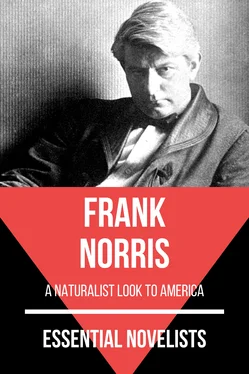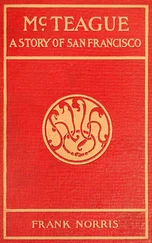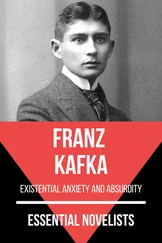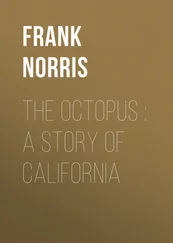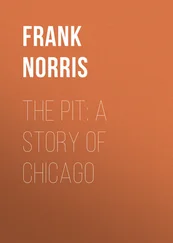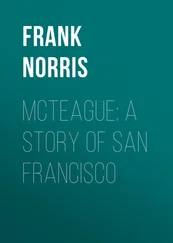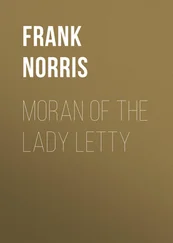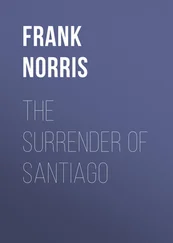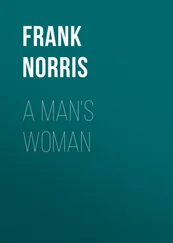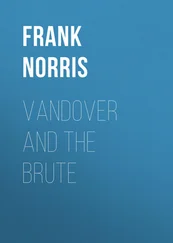Day in and day out these minutiae were rehearsed. The children were drilled in their parts with a military exactitude; obedience and punctuality became cardinal virtues. The vast importance of the undertaking was insisted upon with scrupulous iteration. It was a manoeuvre, an army changing its base of operations, a veritable tribal migration.
On the other hand, Trina's little room was the centre around which revolved another and different order of things. The dressmaker came and went, congratulatory visitors invaded the little front parlor, the chatter of unfamiliar voices resounded from the front steps; bonnet-boxes and yards of dress-goods littered the beds and chairs; wrapping paper, tissue paper, and bits of string strewed the floor; a pair of white satin slippers stood on a corner of the toilet table; lengths of white veiling, like a snow-flurry, buried the little work-table; and a mislaid box of artificial orange blossoms was finally discovered behind the bureau.
The two systems of operation often clashed and tangled. Mrs. Sieppe was found by her harassed husband helping Trina with the waist of her gown when she should have been slicing cold chicken in the kitchen. Mr. Sieppe packed his frock coat, which he would have to wear at the wedding, at the very bottom of “Trunk C.” The minister, who called to offer his congratulations and to make arrangements, was mistaken for the expressman.
McTeague came and went furtively, dizzied and made uneasy by all this bustle. He got in the way; he trod upon and tore breadths of silk; he tried to help carry the packing-boxes, and broke the hall gas fixture; he came in upon Trina and the dress-maker at an ill-timed moment, and retiring precipitately, overturned the piles of pictures stacked in the hall.
There was an incessant going and coming at every moment of the day, a great calling up and down stairs, a shouting from room to room, an opening and shutting of doors, and an intermittent sound of hammering from the laundry, where Mr. Sieppe in his shirt sleeves labored among the packing-boxes. The twins clattered about on the carpetless floors of the denuded rooms. Owgooste was smacked from hour to hour, and wept upon the front stairs; the dressmaker called over the banisters for a hot flatiron; expressmen tramped up and down the stairway. Mrs. Sieppe stopped in the preparation of the lunches to call “Hoop, Hoop” to the greyhound, throwing lumps of coal. The dog-wheel creaked, the front door bell rang, delivery wagons rumbled away, windows rattled—the little house was in a positive uproar.
Almost every day of the week now Trina was obliged to run over to town and meet McTeague. No more philandering over their lunch now-a-days. It was business now. They haunted the house-furnishing floors of the great department houses, inspecting and pricing ranges, hardware, china, and the like. They rented the photographer's rooms furnished, and fortunately only the kitchen and dining-room utensils had to be bought.
The money for this as well as for her trousseau came out of Trina's five thousand dollars. For it had been finally decided that two hundred dollars of this amount should be devoted to the establishment of the new household. Now that Trina had made her great winning, Mr. Sieppe no longer saw the necessity of dowering her further, especially when he considered the enormous expense to which he would be put by the voyage of his own family.
It had been a dreadful wrench for Trina to break in upon her precious five thousand. She clung to this sum with a tenacity that was surprising; it had become for her a thing miraculous, a god-from-the-machine, suddenly descending upon the stage of her humble little life; she regarded it as something almost sacred and inviolable. Never, never should a penny of it be spent. Before she could be induced to part with two hundred dollars of it, more than one scene had been enacted between her and her parents.
Did Trina pay for the golden tooth out of this two hundred? Later on, the dentist often asked her about it, but Trina invariably laughed in his face, declaring that it was her secret. McTeague never found out.
One day during this period McTeague told Trina about his affair with Marcus. Instantly she was aroused.
“He threw his knife at you! The coward! He wouldn't of dared stand up to you like a man. Oh, Mac, suppose he HAD hit you?”
“Came within an inch of my head,” put in McTeague, proudly.
“Think of it!” she gasped; “and he wanted part of my money. Well, I do like his cheek; part of my five thousand! Why, it's mine, every single penny of it. Marcus hasn't the least bit of right to it. It's mine, mine.—I mean, it's ours, Mac, dear.”
The elder Sieppes, however, made excuses for Marcus. He had probably been drinking a good deal and didn't know what he was about. He had a dreadful temper, anyhow. Maybe he only wanted to scare McTeague.
The week before the marriage the two men were reconciled. Mrs. Sieppe brought them together in the front parlor of the B Street house.
“Now, you two fellers, don't be dot foolish. Schake hands und maig ut oop, soh.”
Marcus muttered an apology. McTeague, miserably embarrassed, rolled his eyes about the room, murmuring, “That's all right—that's all right—that's all right.”
However, when it was proposed that Marcus should be McTeague's best man, he flashed out again with renewed violence. Ah, no! ah, NO! He'd make up with the dentist now that he was going away, but he'd be damned—yes, he would—before he'd be his best man. That was rubbing it in. Let him get Old Grannis.
“I'm friends with um all right,” vociferated Marcus, “but I'll not stand up with um. I'll not be ANYBODY'S best man, I won't.”
The wedding was to be very quiet; Trina preferred it that way. McTeague would invite only Miss Baker and Heise the harness-maker. The Sieppes sent cards to Selina, who was counted on to furnish the music; to Marcus, of course; and to Uncle Oelbermann.
At last the great day, the first of June, arrived. The Sieppes had packed their last box and had strapped the last trunk. Trina's two trunks had already been sent to her new home—the remodelled photographer's rooms. The B Street house was deserted; the whole family came over to the city on the last day of May and stopped over night at one of the cheap downtown hotels. Trina would be married the following evening, and immediately after the wedding supper the Sieppes would leave for the South.
McTeague spent the day in a fever of agitation, frightened out of his wits each time that Old Grannis left his elbow.
Old Grannis was delighted beyond measure at the prospect of acting the part of best man in the ceremony. This wedding in which he was to figure filled his mind with vague ideas and half-formed thoughts. He found himself continually wondering what Miss Baker would think of it. During all that day he was in a reflective mood.
“Marriage is a—a noble institution, is it not, Doctor?” he observed to McTeague. “The—the foundation of society. It is not good that man should be alone. No, no,” he added, pensively, “it is not good.”
“Huh? Yes, yes,” McTeague answered, his eyes in the air, hardly hearing him. “Do you think the rooms are all right? Let's go in and look at them again.”
They went down the hall to where the new rooms were situated, and the dentist inspected them for the twentieth time.
The rooms were three in number—first, the sitting-room, which was also the dining-room; then the bedroom, and back of this the tiny kitchen.
The sitting-room was particularly charming. Clean matting covered the floor, and two or three bright colored rugs were scattered here and there. The backs of the chairs were hung with knitted worsted tidies, very gay. The bay window should have been occupied by Trina's sewing machine, but this had been moved to the other side of the room to give place to a little black walnut table with spiral legs, before which the pair were to be married. In one corner stood the parlor melodeon, a family possession of the Sieppes, but given now to Trina as one of her parents' wedding presents. Three pictures hung upon the walls. Two were companion pieces. One of these represented a little boy wearing huge spectacles and trying to smoke an enormous pipe. This was called “I'm Grandpa,” the title being printed in large black letters; the companion picture was entitled “I'm Grandma,” a little girl in cap and “specs,” wearing mitts, and knitting. These pictures were hung on either side of the mantelpiece. The other picture was quite an affair, very large and striking. It was a colored lithograph of two little golden-haired girls in their nightgowns. They were kneeling down and saying their prayers; their eyes—very large and very blue—rolled upward. This picture had for name, “Faith,” and was bordered with a red plush mat and a frame of imitation beaten brass.
Читать дальше
